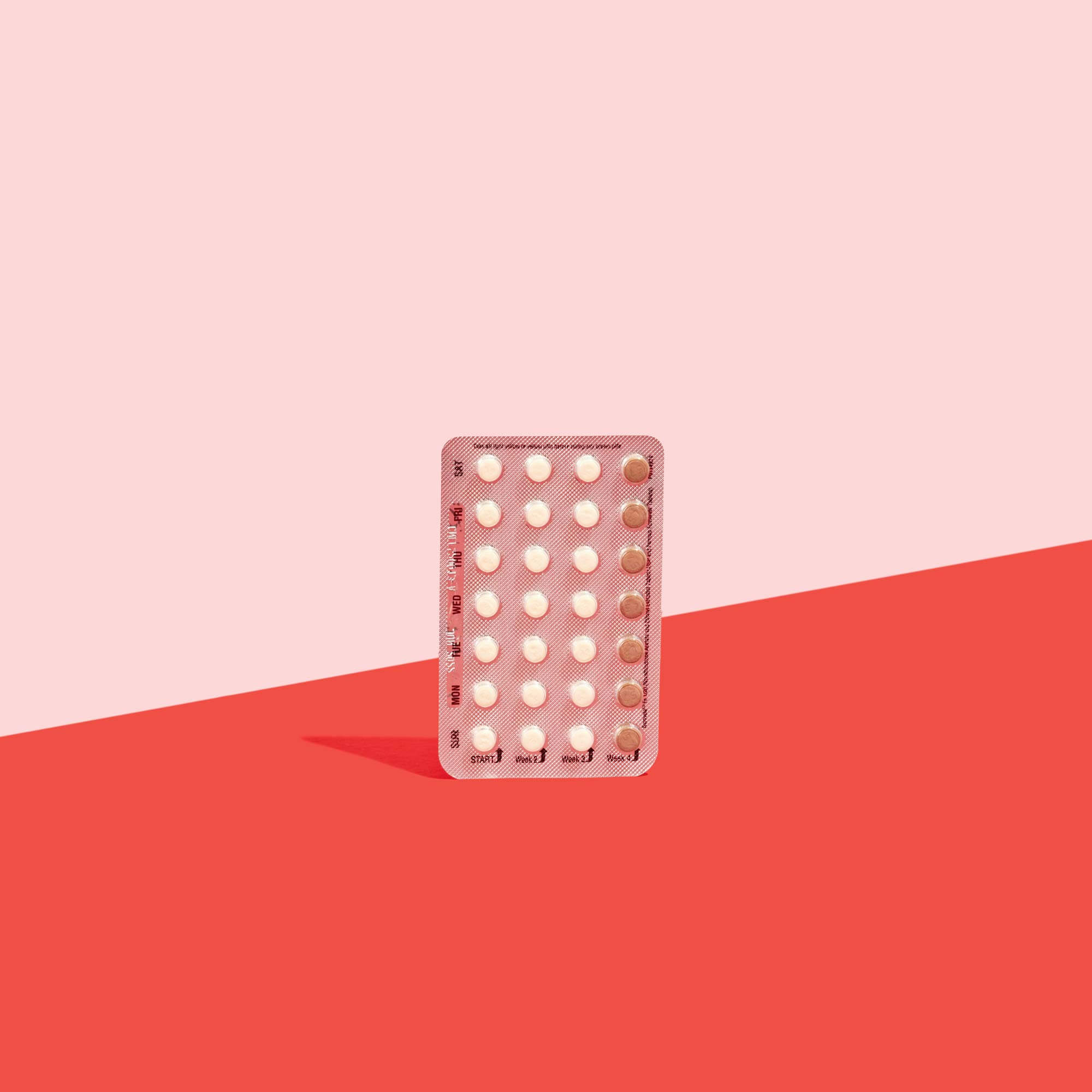
9 Birth Control Myths
By Olivia Ware
October 7, 2020
Finding the right method of birth control can be tricky business. There is enough to consider without having to worry over sifting through misinformation and hearsay. When it comes to preventing unwanted pregnancy, the conversation can start to sound more superstitious than scientific. Let’s investigate some common birth control myths and find out the facts.
Myth #1: When people talk about birth control, they are referring to “the pill”
Maybe! Birth control is an umbrella term for many forms of contraception. One way of thinking about contraception is dividing it into two categories: hormonal and non-hormonal.
Hormonal birth control refers to methods of contraception that contain hormones, either progestin and estrogen—or just progestin—used to prevent unwanted pregnancy. Hormonal birth control comes in many forms, including:
- Pill
- Patch
- Shot
- Ring
- IUD
- Implant
When used correctly, hormonal methods of birth control are statistically more effective at preventing pregnancy than non-hormonal birth control. The following non-hormonal birth control options are widely used:
- Copper IUD
- Condoms
- Diaphragms
- Sponges
- Cervical Caps
- Spermicide
- Abstinence
- The “Pull Out” Method
- The Rhythm Method
With the exception of Copper IUD, the methods listed above are statistically less-effective than hormonal birth control. Further, both the “pull out” method and the rhythm method rely solely on human calculation and therefore leave a wide margin of error. About 1 in 5 people who use the pull out method regularly will get pregnant. It is not recommended to use either of these methods alone for sustained birth control.
Now that we’ve laid out the most popular birth control options, let’s get back to “the pill”. According to the CDC, as of 2017 birth control pills (oral contraceptives) remain the most commonly used form of birth control by women between the ages of 15 and 49.
Even when talking specifically about the pill, there are multiple options to consider—for a complete guide on types of birth control pills including benefits and side effects, read the Guide To Low Cost Online Birth Control!
The pill remains such a popular form of birth control because it is safe, affordable, effective, and now easier to get than ever before. Since the birth control pill is so popular, it is no wonder that most of the common birth control myths are specific to the birth control pill. Let’s set the record straight on a few more!
Myth #2: Your body needs a break from the pill
Hormonal contraception is powerful, but it’s safe to take for years as long as you are not at risk for developing hormonal contraception-related health conditions. It will continue preventing pregnancy as long as you take it as directed and it will not affect your fertility long term. No matter how long you have been on the pill, you will be able to become pregnant after stopping it, as long as you are still of childbearing age and are not impacted by other fertility concerns. The main reason to switch? If your needs change! It's common to change your method of contraception over time. Sick of taking a pill every day? Try an IUD! Thinking about getting pregnant soon? Condoms are your friend. Stick with what works, switch when it doesn't.
Myth #3: Birth control is only used to prevent unwanted pregnancy
Yes, but not always! There are many other uses for birth control beyond preventing unwanted pregnancy. Other common benefits of the birth control pill include:
- Lighter, shorter, and more regular periods
- Lessened PMS symptoms
- Improved acne
- Less painful menstrual cramps
- Reduced risk of ovarian cysts and cyst-related ovarian cancer
Birth control is not just for sexually active heterosexuals! With benefits like those listed above, plenty of people who are not concerned with pregnancy have something to gain by taking birth control. These are just a few more reasons why access to birth control is important.
Myth #4: Smoking while taking birth control is a no-no, but vaping is ok!
Wrong again! Nicotine, the active ingredient in cigarettes and vape juice (as well as nicotine patches and gum used to quit smoking) is the troublemaker when used alongside hormonal birth control. The combination of nicotine and birth control with estrogen increases the risk of blood clots, stroke, and heart attack. These risk factors are also behind the myth that birth control is bad for you. However, when using birth control safely and effectively, the risk is minimal. Talk to your medical provider and seek advice according to your lifestyle. If you are a smoker, using a progestin-only birth control or a non hormonal option may be right for you.
Myth #5: It’s unhealthy to use birth control to skip your period
Periods aren’t medically necessary on the pill—in fact, one of the gynecologists who invented the pill added a week of sugar pills to induce bleeding in an effort to gain approval from the Catholic Church (it didn’t work). If you experience heavy bleeding or painful periods, you may want to talk to your healthcare provider about skipping your week of placebo pills to manage your period symptoms. If you aren't on the pill but are looking to delay your period for a big event, vacation, or competition, you can use Norethindrone. This medication is often used in the regular birth control pill, but can also be taken to press pause on your cycle when you don't want to be dealing with annoying menstrual symptoms!
Myth #6: When taking birth control, there is no need to use a condom
Wrong! Non-barrier birth control methods do not protect against STDs. Using a condom (or another barrier method) is the only form of contraception that minimizes your risk of contracting (or passing along) an STD. Take it from me, who was so single-mindedly concerned about preventing pregnancy in my early twenties, I contracted an incurable STD. The moral of this myth is to use a condom with new partners every time, even if you are on the pill. Additionally, make sure you feel confident enough to talk about sexual health before engaging in intercourse—and get tested regularly!
Myth #7: You cannot become pregnant while taking birth control
While unlikely, pregnancy while on the pill happens. The unfortunate truth is that the only 100% effective birth control method is abstinence. But that’s just not practical. When used correctly, the birth control pill is 99% effective. However, there is always room for error. Say you miss a birth control pill, now what? If you remember to take it within 24 hours, which may mean taking two pills in one day, you should be good. However, the best plan is to never miss taking a birth control pill! Try setting an alarm to take your birth control at the same time each day to ensure its effectiveness—because even a few slip-ups can leave you unprotected.
It is also necessary to remember that if you are starting birth control, it doesn’t start working the moment it enters your system. How long does it take for birth control pills to become effective? It depends on the type of pill and at what point during your menstrual cycle you start it. Stay safe and be sure to use a condom for the first few weeks when you begin a new prescription or make any changes to your birth control routine.
That said, accidents still happen. If you forget to take a couple days of birth control, or a condom breaks and you realize you just had unprotected sex, Online Emergency Contraception is available. The two most common forms of emergency contraception are Plan B and ella®. The main thing to remember about taking either is to do so as soon as possible following contraceptive failure.
Plan B is very affordable and can be delivered to your home to keep on hand if necessary. ella® is for immediate use and can also be ordered online in advance or the morning of, but must be picked up at your local pharmacy. Learn more about Ordering Emergency Contraception Online or Preparing For Plan B.
Myth #8: Birth control causes weight gain
The short answer is no. There is no evidence that using hormonal birth control leads to sustained weight gain. As your body adjusts to the pill, there may be some fluid retention (what we often call "water weight"), but this typically goes away within 2-3 months. Anecdotally, women report both weight gain and weight loss as a side effect of birth control. Give your body time to adjust to new medication. After all, every body is different.
Myth #9: Prolonged birth control use causes infertility
Nope. This myth is not supported by any scientific evidence. Due to a lack of understanding here, this myth is passed between family just as often as it is between friends and peers. Unfortunately, it often carries an added social stigma, e.g. “No wonder she is having problems getting pregnant, she’s been on birth control since she was 16!”
While it may take a bit for your body to return to its regular rhythms after stopping birth control, there is no link between long term use of birth control and infertility. Just as it takes time for your body to adjust to using birth control at the start, it takes time to adjust to not using birth control when you stop. It is time that we all agree to leave both slut shaming and the myth of birth control causing infertility in the past!
While birth control is completely safe, having unprotected sex, i.e. “non-barrier” protected sex, still leaves the door open to STIs. Recall that it’s impossible to verify an STI without a lab test, and that they therefore go untreated in women for years. Because untreated STDs can cause infertility down the road, many women mistakenly blame hormonal birth control for their difficulty getting pregnant when in fact it is the result of an untreated STI. Again, use a condom even while taking birth control and don’t skip out on getting tested!
Choosing the right birth control option for you!
These are just a few of many myths and uncertainties swirling around the cultural conversation about birth control. With so many birth control options, clearly there is no one size fits all. Consult a medical professional to determine which form of birth control is right for you. Ask questions and stay informed. When it comes to sexual health, it is always better to stay safe than to be sorry.
Get Reproductive Care Online

Delay Your Period (Norethindrone Acetate Tablets)
Starting at $39
Delay Your Period for up to 20 days for special events, competitions, or vacations. Not a form of birth control.

Levonorgestrel (Generic PLAN B)
Starting at $12.50
Take Levonorgestrel as soon as possible but within 72 hours (3 days) of unprotected intercourse or contraceptive failure. Delivery only - order ahead of time!

Skip Your Period
Starting at $22
Skip Your Period long-term with birth control options delivered to your door.

Ella® Emergency Contraception
$44
Take Ella as soon as possible, but within 120 hours (5 days) of unprotected intercourse or contraceptive failure. Ella is pick-up only - order after contraceptive failure!


